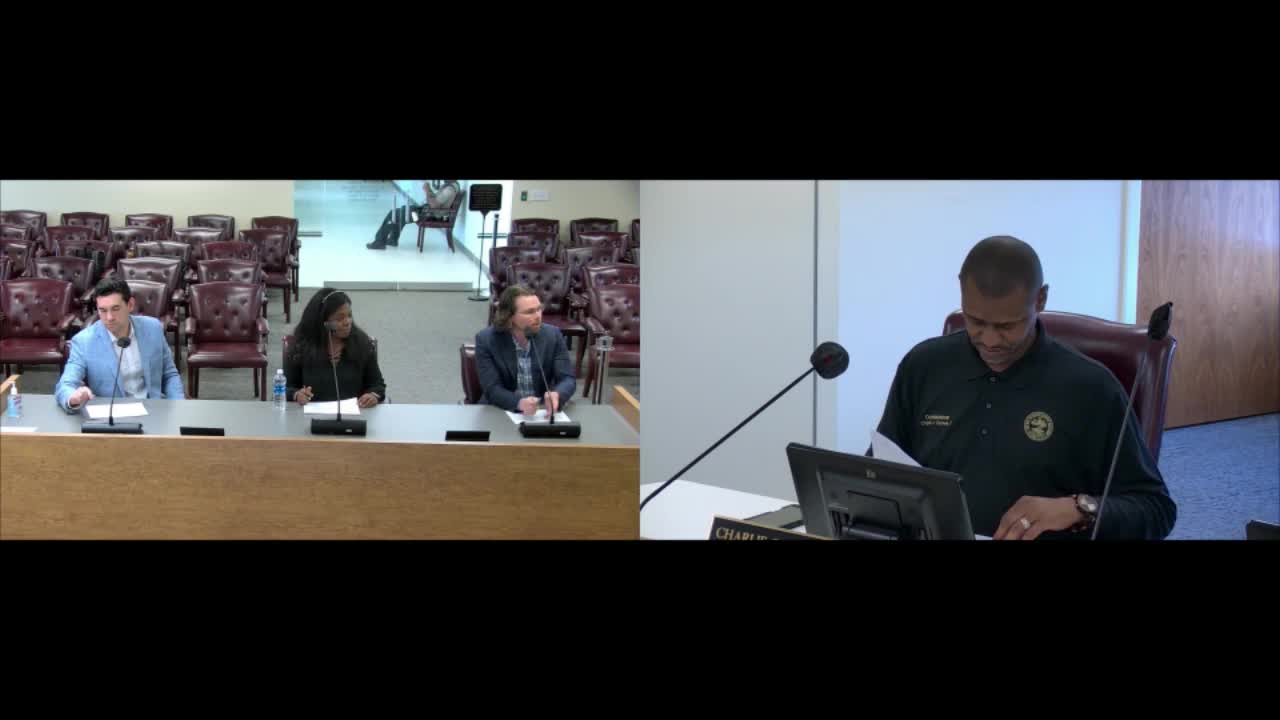Slingshot proposes grantmaking overhaul for Milton community grants; Shelby County subcommittee forwards recommendations to full board
Get AI-powered insights, summaries, and transcripts
Subscribe
Summary
Slingshot Memphis presented a plan to improve application, compliance and impact reporting for the Reginald Milton Community Enhancement Grant Program. Commissioners debated vendor selection, reporting frequency and accountability measures and voted to forward the committee's recommendations to the full Board of Commissioners.
Slingshot Memphis proposed a two-part plan to tighten oversight of Shelby County's Reginald Milton Community Enhancement Grant Program and to produce annual impact reporting, and the subcommittee voted to forward a package of recommendations to the full Board of Commissioners.
At a subcommittee meeting, Jared Barnett, president and CEO of Slingshot Memphis, told commissioners Slingshot is “a poverty-fighting expert. It's what we do every day,” and outlined work streams to (1) redesign grantmaking infrastructure — application, compliance and implementation — and (2) produce annual impact measurement and reporting tied to measurable grant objectives.
The proposal described a set of practical deliverables, including a refined grant application that builds in ethical guidelines and data collection, report templates for recipients to document outputs and outcomes, a documented operating manual so procedures persist across staff turnover, and an annual impact report summarizing fiscal-year allocations and outputs. Slingshot proposed the grantmaking infrastructure work could take about six months, with ongoing impact measurement taking roughly three months at the close of each fiscal year; some implementation steps were described as dependent on each other and on decisions about scope and budget.
Commissioners and staff pressed Slingshot representatives about how the organization was invited to present and about existing relationships. John Donovan, senior vice president of strategy and development at Slingshot Memphis, said Slingshot had reached out to multiple commissioners and met with Commissioners Whaley and Wright before being placed on the subcommittee agenda. Barnett and colleagues said Slingshot has a cordial, informal relationship with Innovate Memphis and occasional contacts with More for Memphis but no formal contracts with those entities.
Several commissioners raised concerns about vendor selection, equity and scale. One commissioner noted Shelby County includes roughly 11,000 nonprofits and said the committee should avoid a process that effectively certifies only organizations that meet Slingshot’s standards. Commissioners suggested issuing a public request for proposals (RFP) or otherwise opening the opportunity to competitive bids rather than moving directly to a single vendor contract. Commissioner Thornton urged that any vendor process include consultation with the county’s IT and nonprofit-support units so countywide funding administered by the mayor's office could be considered alongside commission allocations.
Committee members also discussed operational accountability steps they said are already in part in place and where to strengthen them: the grants coordinator, Tanya Blunt, reported there are about 401 applicants in the county’s grant system; commissioners noted the current program minimum award listed in the resolution is $2,000. Commissioners recommended more regular public reporting (quarterly or within 90 days after the close of the fiscal year) listing recipients, award amounts and basic impact metrics by commission district so constituents can see how funds are used. Several members asked that receipts or equivalent verification be required in grant closeout documentation; staff and legal were asked to advise how receipts or alternative verification could be required in cases where a standard receipt is not available.
The subcommittee also discussed a proposed applicant waiver to clarify conflicts of interest and to specify that nonprofits should not do business with commissioners in the same transaction that produced their grant award; the county attorney and finance were asked to draft language and advise on procurement or legal implications.
After discussion, a motion was made to accept the subcommittee’s recommendations and forward them to the full Board of Commissioners for consideration. The motion — "to accept all unique recommendations provided in the subcommittee for review by the Board of Commissioners" — was made from the floor and seconded; it was approved by voice vote with no objections. The subcommittee chair said staff will draft a resolution for the full body to consider and that legal and finance review will be included where required.
Why it matters: the Milton Community Enhancement Grant Program is a highly visible county discretionary grant process used by commissioners to fund neighborhood groups and small nonprofits. Commissioners and some constituents have asked for clearer reporting and accountability so tax dollars can be tracked and evaluated. The subcommittee’s recommendations, if adopted by the full board, would change application and reporting procedures and potentially establish a competitive vendor selection process for technical support and impact analysis.
The subcommittee did not finalize a vendor contract; Slingshot representatives repeatedly said the county could implement many of the proposed changes internally and that outside vendors other than Slingshot could perform the work if the commission chose to pursue an RFP. The committee asked staff to prepare draft language and processes for consideration by the full board.
